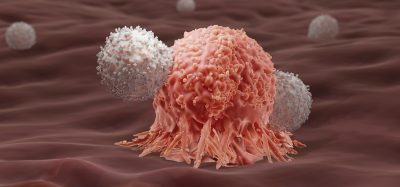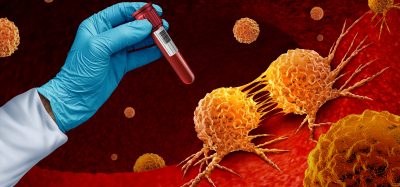Cancer therapy shows potential to treat severe COVID-19 patients
Posted: 28 October 2022 | Izzy Wood (Drug Target Review) | No comments yet
Pre-clinical experiments involving cells from ICUs patients infected by SARS-CoV-2, and mice infected by MHV-A59 (murine hepatitis virus A59) show promise in treating COVID-19.


A type of cancer treatment known as immune checkpoint blockade may be beneficial in certain cases of severe COVID-19. The findings published in Science Advances were based on experiments involving cells from patients treated in ICUs, after being infected by SARS-CoV-2, and mice infected by MHV-A59 (murine hepatitis virus A59), another betacoronavirus.
The hypothesis tested in the study arose when researchers from the State University of Campinas’s Institute of Biology (IB-UNICAMP), Brazil, observed that mice that did not express the protein TMEM176D responded more acutely to infection by MHV-A59. TMEM176D regulates inflammasomes, protein complexes deployed by the innate immune system to trigger inflammation as a weapon against tumours, viruses and bacteria.
Inflammasome activation is more intense without TMEM176D. More inflammatory cytokines are released, including interleukin-1 beta (IL-1β), which is known to play a role in severe COVID-19.
In the trials involving mice, treatment with a PD-1 inhibitor restored T-cell functionality. In addition, the researchers had access to blood from healthy donors and COVID-19 patients hospitalised at two institutions in Montevideo, Uruguay’s capital. Experiments involving healthy cells infected with SARS-CoV-2 were conducted at UNICAMP’s Laboratory of Emerging Virus Studies (LEVE).
Furthermore, in trials involving human blood samples, only cells that came from patients in intensive care benefited from the administration of atezolizumab, a PD-1 inhibitor used in the study. This was because of inflammasome overactivation leading to exhaustion and dysfunction of adaptive immunity in these patients.
The findings should be considered with caution, the researchers warn. Studies involving cancer patients who were treated in this manner before contracting COVID-19 showed no benefits or pointed to negative results.
In one study, administration of the therapy before viral infection did not lead to an improvement in COVID-19. In another study, involving 423 patients, there were more cases of hospitalisation and severe disease among those who had been given the inhibitor.
On the other hand, a clinical trial of PD-1 inhibitors in sepsis patients showed the therapy to be safe. More research will therefore be needed to glean a deeper understanding of the effects of the treatment in the context of COVID-19.
“PD-1 blockade is one of the known immune checkpoint therapies and one of the therapies we analysed in the study. It tells T lymphocytes to stop responding to infection after a time so that the response is not excessive. In cases of cancer, sepsis and severe COVID-19, however, PD-1 makes T cells stop functioning even before the disease has been resolved and must therefore be blocked,” said Pedro Moraes-Vieira, one of the leaders of the study.
“These are very expensive treatments, but we believe it could be a viable option because there are not as many critical patients as there were at the start of the pandemic, provided further research confirms that it’s safe for COVID-19 patients,” Moraes-Vieira concluded.
Related topics
Drug Repurposing, Immuno-oncology, Immunotherapy, Oncology, T cells, Targets
Related conditions
Covid-19, SARS-CoV-2
Related organisations
State University of Campinas’s Institute of Biology (IB-UNICAMP)
Related people
Pedro Moraes-Vieira








